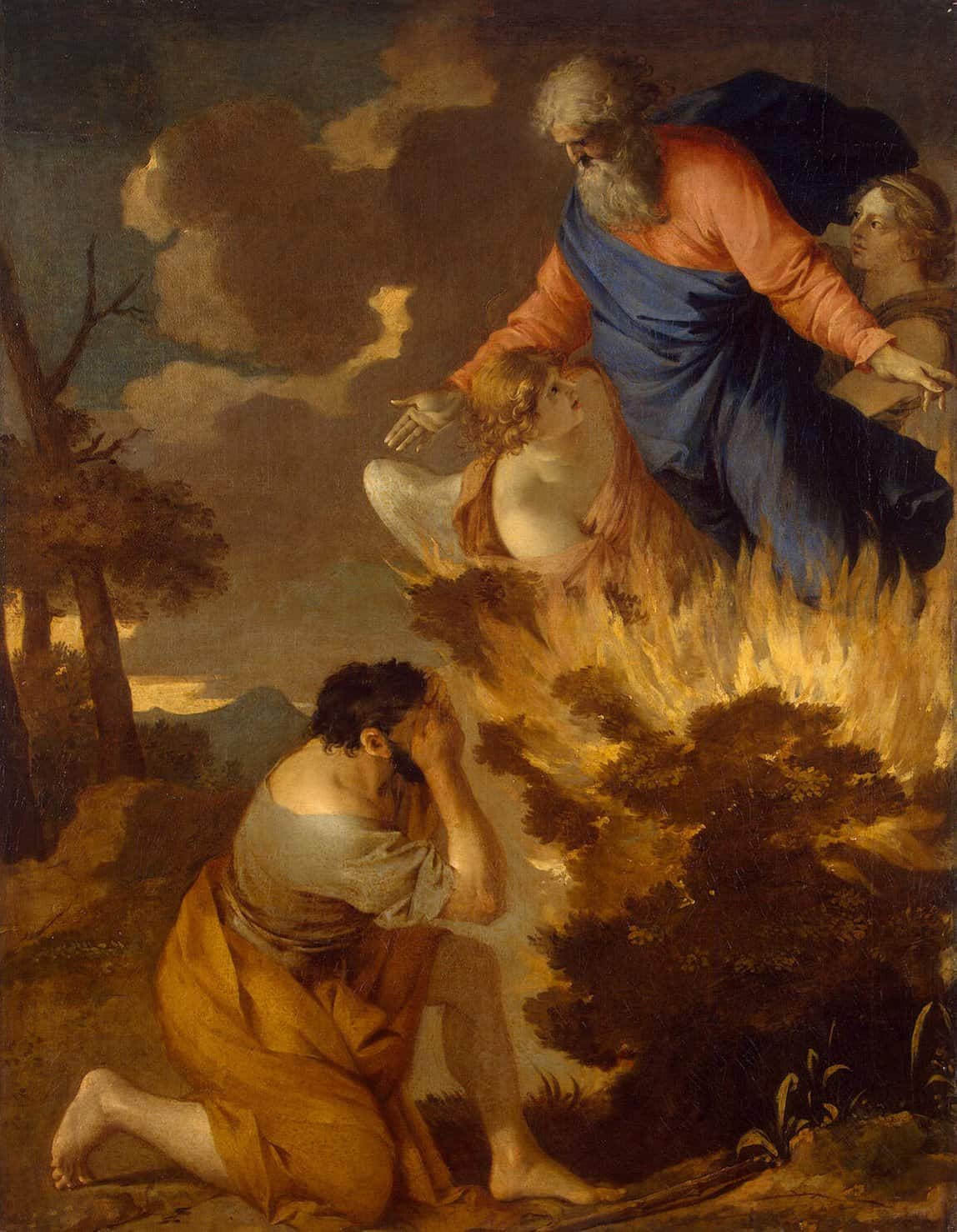A PDF file of this article is available here.
When God spoke to Moses from the burning bush, He told him He was coming to rescue His people from slavery (see Ex. 3:7-9). Then He “turned a corner” in His message, telling Moses, “Therefore, go. I am sending you to Pharaoh so that you may lead My people, the Israelites, out of Egypt” (v. 10). In response, Moses offered a series of excuses. We see these in their conversation in Exodus 3:11–4:17.
- Moses’ initial response was to ask God, “Who am I that I should go to Pharaoh and that I should bring the Israelites out of Egypt?” (3:11). God told Moses He would be with him and that the sign of His having sent Moses would be that after leading the people out of Egypt, everyone would worship or serve Him on that mountain (see 3:12). Having served the Egyptians as slaves, the Israelites would be freed and would serve the God who liberated them.
- Moses then suggested to God that if he went to the Israelites and told them the God of their fathers had sent him to them, they might ask him what God’s name was. What should he then say? The Lord said, “I AM WHO I AM. This is what you are to say to the Israelites: I AM has sent me to you” (3:14). God went on to give additional instructions to Moses regarding His name, gathering the elders of Israel together, and confronting Pharaoh. He also promised to act powerfully in His people’s behalf, bringing the Egyptians to a point of giving valuable possessions to the Hebrews at the time of their departure (see 3:15-22).
- Moses’ third objection is recorded in Exodus 4:1: “What if they won’t believe me and will not obey me but say, ‘The LORD did not appear to you’?” In response, God gave Moses a series of miraculous signs he could use as evidence the one true God had sent him. His staff became a snake and then a staff again. The skin on his hand became diseased and then was made healthy again. God also told Moses the water from the Nile River would become blood, something that would occur during the first of the ten plagues (see 4:2-9; 7:14-24).
- Here was Moses’ fourth objection: “Please, Lord, I have never been eloquent…I am slow and hesitant in speech” (4:10). God reminded Moses that He Himself was the Creator, and that He made people’s mouths and made a person mute or deaf. God also made people seeing or blind. In other words, God wasn’t making a mistake by calling Moses to do this job. The Lord also told Moses He would help him and would instruct him regarding what to say (see 4:11-12).
- Moses’ fifth objection was a request. Perhaps at last Moses was expressing what he had felt all along. He simply didn’t want to do the job God was asking him to do, so he said, “Please, Lord, send someone else” (4:13). God told Moses that his brother Aaron would help him, and that He—the Lord—would help them both accomplish the important task He was giving them. After this Moses relented and obeyed the Lord.
Moses was indeed a humble man as He led God’s people to the promised land (see Num. 12:3), but excuses still are a form of pride. They resist God rather than submit to Him, they presume that the individual making them has a better plan than God Himself, and they imply that God is wrong to give the assignment He is giving. To Moses’ credit, the soon-to-be leader of Israel moved out to obey God, despite his discomfort. In the end, God used Moses mightily. As we trust the Lord and obey His instructions, He will use us as well.
Copyright © 2017 by B. Nathaniel Sullivan. All rights reserved.
Unless otherwise noted, all Scripture quotations in this article have been taken from the Holman Christian Standard Bible®, Copyright © 1999, 2000, 2002, 2003, 2009 by Holman Bible Publishers. Used by permission. Holman Christian Standard Bible®, Holman CSB®, and HCSB® are federally registered trademarks of Holman Bible Publishers.
